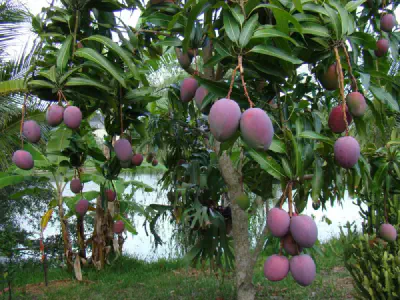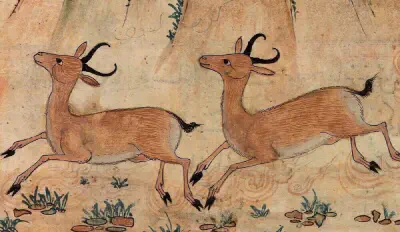Welcome
Welcome to the latest Looking for Wisdom philosophy course, where we’ll be exploring the philosophy of work.
We spend much of our lives working, and much of the time when we are not working, we spend talking about work, recovering from work, fretting about work, or wondering if we should work more or work less. But what is work? Why does it loom so large in our lives? And how can philosophy help throw more light on what work is, and why it matters?
What is work?
In his book on the philosophy of work, Lars Svendsen says that work, at the most fundamental level, is about acting on the external world so that “one can get the necessities of life.”[1] You work hard in the garden, turning over the soil and planting your seeds in neat rows. And sometime in the future, you will be able to feast on the crops you have planted.

This means that work is not just about getting the necessities of life here and now. It is not merely a matter of shaping the world in the present. It is also about our relationship with the future. It is about making sure we continue to get the things we need, in an uncertain world. As the Book of Proverbs in the Old Testament says, it is perhaps wise to put in work now, so that our future will be one of greater ease: “He that tilleth his land shall be satisfied with bread: but he that followeth vain persons is void of understanding” (Proverbs 12:11).
But if work is about attaining external goods—both in the immediate term and also in the future—it is not just about this. Many of our preoccupations around work are related to internal goods. These are the kinds of questions that worry us: Is our work meaningful? Is it satisfying? Is it enjoyable? Does it meet our hunger for status? What does it do in terms of our need for a particular identity, a particular kind of role in the world?
External and internal goods do not always align. And this often makes our relationship with work a complex one. Do we take the higher-paying but lower-status job? Or do we take the lower-paying but higher-status job? How do we manage the trade-off between material security and a more meaningful life? What if our work is fun, just the right level of stretching, and materially beneficial, but at the same time harmful to others? Can it still be called good work?
In the sweat of thy face: the origins of work
We are used to thinking these kinds of questions are integral to human existence. And in contemporary societies, perhaps they are. But according to some accounts, our current preoccupation with work has not always been with us.
Many ancient myths talk about a time before human beings needed to work. In the Old Testament Book of Genesis, the first humans live in a state of innocence and leisure, plucking fruit from the trees and in harmony with the other creatures of the world. But a fatal act of disobedience leads to their expulsion from paradise, and to the curse of work:
cursed is the ground for thy sake; in sorrow shalt thou eat of it all the days of thy life; thorns also and thistles shall it bring forth to thee; and thou shalt eat the herb of the field; in the sweat of thy face shalt thou eat bread, till thou return unto the ground; for out of it wast thou taken: for dust thou art, and unto dust shalt thou return.[2]
Greek mythology also looks back to a charmed Golden Age. In his Works and Days, written around the turn of the seventh century BCE, Hesiod tells the following story about the first human beings, who lived in a state of abundance, and did not have to wrestle what they needed from the soil:
They had good things galore; a bumper yield Of corn sprung volunteering from the field. They shared the harvest, peaceful as you please, And gentle, willing, dwelt in bounteous ease.[3]
If both Greek and Biblical traditions see work as a symptom of decline, a fall from an earlier state of grace, the Chinese tradition takes the opposite view.
For the philosopher Mencius (372–289 BCE), early humans lived in a state not of primal abundance, but of primal lack. In the time of the ancients, Mencius says, grain did not ripen, the terrain was covered in thickets of trees and shrubs and the people were at the mercy of wild animals. So the sage-kings imposed order on the land. They removed the underbrush, channelled the rivers, and thereby opened up space for agriculture, teaching people how to cultivate grain.[4]

An original affluent society?
These stories may all contain an element of collective folk memory. For most of our history, our ancestors were hunter-gatherers. Before the coming of civilisation, human beings lived in small groups, hunting and foraging for food and their daily necessities. This may seem like a strenuous way to go about making a living. But the evidence suggests otherwise.
The idea that people in hunter-gatherer societies work less than those who live in settled agricultural societies goes back to the mid-1960s when the anthropologist Marshall Sahlins first talked about hunter-gatherer society as “the original affluent society.” In his 1972 book Stone-Age Economics, Sahlins wrote that:
A good case can be made that hunters and gatherers work less than we do; and, rather than a continuous travail, the food quest is intermittent, leisure abundant, and there is a greater amount of sleep in the daytime per capita per year than in any other condition of society.[5]
Over the decades since Sahlins first proposed the idea of the original affluent society, many anthropologists have challenged his view, arguing that it is more a reflection of our romantic view of the past—playing into Biblical and Classical myths—than it is a reflection of reality. And there are certainly downsides to the hunter-gatherer way of life: scarcity, the risk of violence, high infant mortality, and disease.
Nevertheless, several decades after Sahlins first talked about the original affluent society, contemporary anthropological data tends to broadly support the claim that hunting and gathering cultures tend to work less. Recent research among the Agta people in the Philippines, for example, also suggests that the move from hunting and gathering to farming leads to a net increase in work.
But also, in hunter-gatherer societies, the boundaries between work and non-work may be more thinly drawn. Among the Agta, leisure time plays an important social role. Time spent hanging out, chatting, making jokes is not just downtime. It also plays a vital role in refining, sharing and handing on sophisticated cultural knowledge that allows that Agta to flourish in their particular niche.[6] Leisure, in this sense, helps sustain the existence of the Agta as much as work.
The invention of hierarchy
One additional consequence of the move from hunter-gatherer societies to settled agricultural societies—and to the towns, cities and civilisations that followed—was the invention of hierarchy.
Hunter-gatherer societies are often markedly egalitarian. They don’t exhibit the same static hierarchies that settled communities do. But once communities settle, and in greater numbers, hierarchies tend to emerge—according to the increasingly specialised work that people do, according to gender, or according to the wealth that people have managed to accumulate.
Over in China, Mencius argued that the ordering of the world into well-functioning societies necessitated a kind of hierarchy. And this meant a division between those who laboured with their hearts (or their minds—the Chinese character xin means both) by governing others, and those who laboured with their strength, and who were themselves governed:
it is said, “Some labour with their hearts; some labour with their strength. Those who labour with their hearts rule others; those who labour with their strength are governed by others.” Those who are governed by others feed others; those who govern others are fed by others. This is the righteousness common to the world.[7]
Contemplation, leisure and slavery
Mencius splits the idea of work into two. On the one hand, there is intellectual work or the activity of the mind. And on the other hand, there is physical work, or the activity of the body. This was a division that was made with similar starkness over in Greece, with Mencius’s contemporary, Aristotle (384–322 BCE).
Aristotle sees human activity hierarchically: at the top of the hierarchy is theōria, or contemplation. Below this is praxis, or practical activity, which for Aristotle encompasses both politics and ethics. And below this, there is technē, or craft (see the article here), and the bodily labour performed by slaves.
For Aristotle, there is an inherent dignity and goodness to thinking. But there is little inherent dignity to be found in craft, or in physical labour. The purpose of physical work, as far as Aristotle is concerned, is to provide leisure. And if you can get somebody else to work so that you can have more leisure, then so be it.
This leads to Aristotle’s notorious support for the institution of slavery. He justifies slavery with the deeply problematic claim that some of us are naturally slaves, while some of us are naturally rulers. In the Politics, Aristotle writes:
For if something is capable of rational foresight, it is a natural ruler and master, whereas whatever can use its body to labour is ruled and is a natural slave. That is why the same thing is beneficial for both master and slave. [8]

The claim of mutual benefit seems puzzling. But for Aristotle, if intellectual pursuits—born out of leisure—are the highest end for human life, slavery gives the slave (who is naturally not given to contemplation) a way of participating in this highest end.
Slavery was deeply embedded in Greek society. But Aristotle’s defence of the institution is not without unease. He argues that slavery is a just institution, but then he makes a reversal and says that those who claim the opposite, and say it is unjust, are “right, up to a point.” But if Aristotle recognises slavery as an injustice, at least to some extent, as Svendsen writes, “he took [it] to be a necessary injustice. He seemed to think: somebody has to do the dirty work, and it had better not be me.”[9]
Aristotle’s conclusions are deeply unpalatable. But even today, how we think about work is deeply entangled with questions of hierarchy. And this raises all kinds of uncomfortable questions about the kind of work we and others do, how different kinds of work are rewarded, and how our own comforts may ultimately depend on the discomfort of others.
Thinking through work
There is nothing straightforward about our attitudes to work. Work involves balancing external goods (putting food on the table, bringing in the harvest) and internal goods (fulfilment, well-being, fun). It is mixed up with questions of hierarchy, status and how we divide up tasks in our complex societies. And it raises contentious questions about the value of the work we and others do. Are different kinds of work different in dignity? How do we think about the relationship between the work of the heart/mind, and the labour of strength? Does work ennoble us? And if so, what kind of work? Or does all work minimise us? Should leisure be seen as the goal of human life, as Aristotle might have it? Or should we see the Aristotelian leisured classes as parasites?
Over the next few weeks, we’ll be exploring all of these questions. We’ll be rethinking the hierarchy between contemplation and labour. We’ll be exploring the dignity and the drudgery of work. We’ll be asking questions about the opposites of work: idleness, leisure and play. And we’ll be looking into our crystal balls to ask about work holds for us in the future.
Have a look at the course outline below to see a sketch of the road to come.
Course Outline:
- Week 1: Working it Out: The Philosophy of Work
- Week 2: Labour, Work, and Action: Hannah Arendt on the vita activa.
- Week 3: The Dignity of Work: Is Work our Salvation?
- Week 4: The Drudgery of Work: Why Work is Bad for Us
- Week 5: The Opposite of Work Part I—In Praise of Idleness
- Week 6: The Opposite of Work Part II—What is Play?
- Week 7: Our Automated Future: The Future of Work
Questions
- Have you ever had a job that involved substantial external goods (e.g., putting food on the table), but very few internal goods (e.g., satisfaction, fun, enjoyment, a sense of personal development)? What about the reverse situation?
- And now a follow-up: how do you balance external and internal goods in your own approach to work?
- A very general question this, but one that is fun to think about: is hierarchy inherently bad? Or even if it is overall a good thing, does it always entail some degree of badness?
- Few would speak in favour of Aristotle’s defence of slavery today. But to what degree do you think we are still like Aristotle? In other words, to what degree does our comfort (to the extent that we are comfortable) rest upon the discomfort of others?
- Is work inherently unjust? Or is there a way that we can make our approach to work much more just?
Notes
- Lars Svendsen, Work (Routledge 2016), p. 10
- Genesis 3. Here in the King James version.
- Alicia Stallings (translator), Hesiod: Works and Days (Penguin Classics 2018).
- Mencius 3A: 4.7-4.11. In Bryan W. Van Norden (translator), Mengzi: with selections from traditional commentaries (Hackett 2008).
- Marshall Sahlins, Stone-Age Economics (Aldine Atherton, Inc. 1972), p. 14.
- Dyble, M., Thorley, J., Page, A.E. et al. Engagement in agricultural work is associated with reduced leisure time among Agta hunter-gatherers. Nature Human Behaviour 3:8**,** 792–796 (2019). https://doi.org/10.1038/s41562-019-0614-6
- Mencius 3A 4:6. See Bryan W. Van Norden, Mengzi.
- Aristotle Politics (1252a 30). In C.D.C. Reeve (translator), Aristotle: Politics (Hackett 1988), p. 2
- Lars Svendsen, p. 59
More further reading
Books and articles
If you can get hold of it, David Kaplan’s “The Darker Side of the ‘Original Affluent Society’” is worth reading. You can find it in the Journal of Anthropological Research, Vol. 56, No. 3 (Autumn, 2000), pp. 301-324
Jared Diamond’s famous essay, “The Worst Mistake in the History of the Human Race” is a fun and easy read. You should be able to find it online. It was first published in Discover Magazine, 64–66 (May 1987).
Online resources
Agnes Callard has written an interesting piece in the New York Times asking Should We Cancel Aristotle? You can read the piece here.
Image: The Seasons by Pieter Brueghel the Elder. Metropolitan Museum of Art, online collection. Public Domain via Wikimedia Commons.



